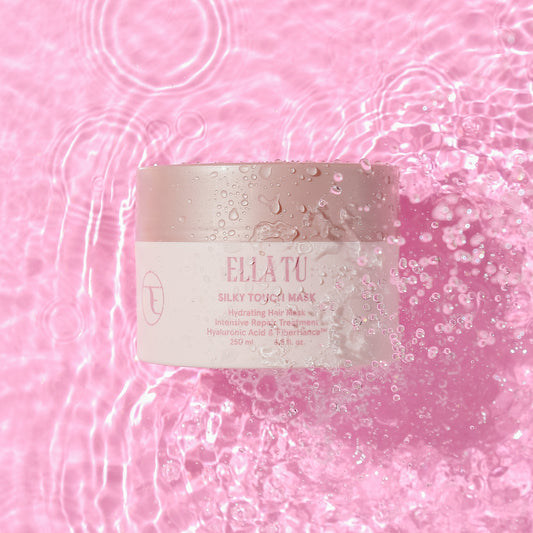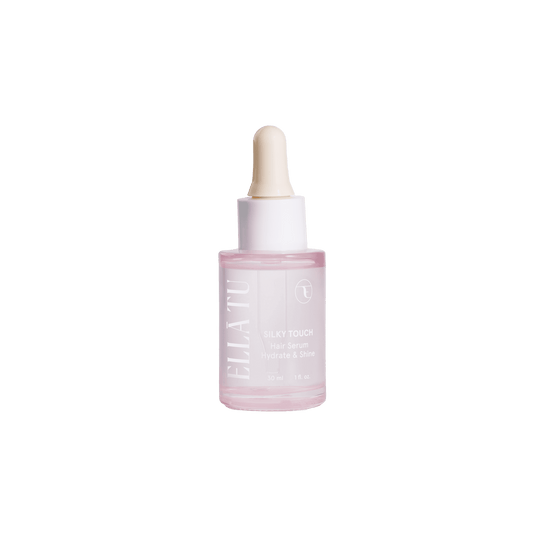Your hair is not only a reflection of your daily care routine and lifestyle; it's also deeply influenced by your genetics and hormonal fluctuations. In this blog post, we'll delve into the genetic and hormonal aspects of hair health, addressing questions like "Where do hair genes come from?" and "Why hair loss after pregnancy?" Understanding these factors is crucial for effectively managing and addressing hair-related issues. Let's explore the genetic and hormonal underpinnings of your locks.
Where Do Hair Genes Come From?
- Hair genes are inherited from your parents. You can thank your family tree for the texture, color, and thickness of your hair. The genes responsible for hair traits are passed down through generations. For example, if your parents have naturally curly hair, there's a good chance that you might inherit this trait as well. However, it's essential to note that genetic influences on your hair are not limited to its appearance; they can also impact your hair's overall health.
Genetic Factors in Hair Health
- Hair Type: Your hair type, whether straight, wavy, or curly, is determined by your genetic makeup.
- Hair Color: The genes you inherit dictate the melanin production in your hair, which affects its color.
- Hair Texture: The thickness and texture of your hair strands are influenced by genetics.
- Hair Loss: Genetic factors can play a significant role in hair loss conditions, such as male pattern baldness and female pattern hair loss.
Why Hair Loss After Pregnancy?
Hair loss after pregnancy is a common concern for many new mothers, and it's largely related to hormonal changes that occur during and after pregnancy. During pregnancy, increased levels of certain hormones, such as estrogen and progesterone, contribute to thicker, healthier hair. However, after giving birth, these hormone levels drop, leading to a phenomenon known as postpartum hair shedding.
Postpartum Hair Shedding
Postpartum hair shedding is a temporary condition in which you may experience significant hair loss, usually beginning around three to six months after giving birth. The shedding can be alarming but is generally a normal part of the postpartum experience. The hair that you didn't shed during pregnancy starts to fall out, returning your hair to its pre-pregnancy state.
Hormonal Factors in Hair Health
- Menopause: Hormonal fluctuations during menopause, particularly a decrease in estrogen levels, can lead to changes in hair thickness and texture.
- Thyroid Problems: Imbalances in thyroid hormones, whether due to hyperthyroidism or hypothyroidism, can affect hair health and lead to hair loss.
- PCOS (Polycystic Ovary Syndrome): PCOS is a hormonal disorder that can lead to hair thinning and increased hair growth in unwanted areas.
- Alopecia: Hormonal imbalances can also contribute to various types of alopecia, including androgenetic alopecia.
- Cancer Treatment: Chemotherapy, a common cancer treatment, often results in hair loss due to its impact on hormonal balance.
Addressing Hair-Related Issues
- Consult a Professional: If you're experiencing hair loss or significant changes in your hair health, consult a healthcare professional or a dermatologist. They can diagnose the cause and recommend appropriate treatments or interventions.
- Hormone Management: For hormonal issues, such as those related to menopause, thyroid problems, or PCOS, medical treatments or hormone replacement therapy may be recommended.
- Hair Loss Treatments: Various treatments and products are available to address hair loss, including medications, hair growth therapies, and lifestyle changes.
- Hair Care: Regardless of your genetic predispositions and hormonal fluctuations, maintaining a healthy hair care routine is essential. Use gentle products and avoid excessive heat styling or harsh chemical treatments.
Your hair's health and appearance are influenced by a combination of genetic factors and hormonal fluctuations. Understanding the roots of hair-related issues is the first step towards effective management and prevention. Whether you're dealing with genetic traits or hormonal changes, there are solutions and treatments available to help you maintain and enhance your hair's health and vitality. Consult with professionals to determine the best course of action for your specific circumstances, and remember that proper hair care practices play a significant role in promoting overall hair health.









